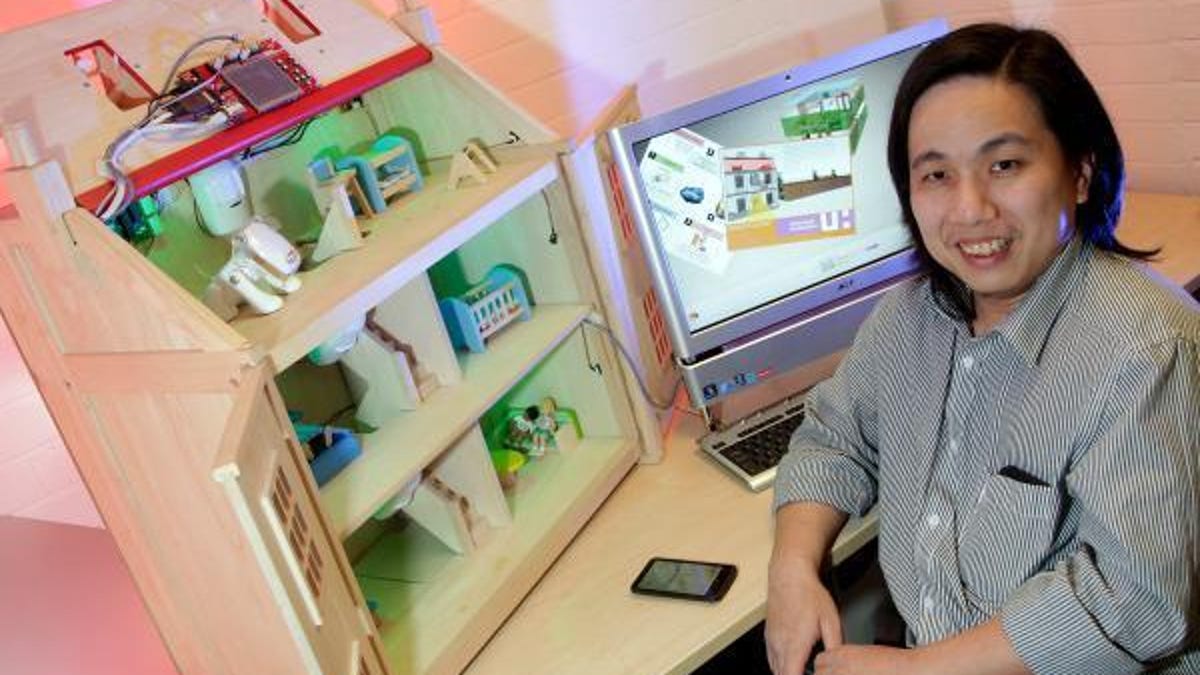Smart house monitors inhabitants' health
Called Interhome, the energy-efficient system in the UK is designed to learn from its inhabitants, text if security is breached, and now even monitor its occupants' health.

Researchers at the University of Hertfordshire in the United Kingdom are unveiling a prototype system they say is designed to learn from its inhabitants, text if security is breached (or a door left unlocked), and now even monitor its occupants' health.
The InterHome, developed in a doll's house, uses a touch-screen control panel that enables online and smartphone monitoring and control from afar.
The house not only incorporates energy-efficient and security features that learn from the occupants' living habits (when lights tend to be on or off where, when the house is empty, etc.), but also a device that can be strapped to a wrist with various sensors to take such readings as temperature and pulse.
"We developed it further with elderly people in mind so that the house can send alerts if the person has a fall or a stroke," says Johann Siau, senior lecturer at the university's School of Engineering and Technology. "This opens up a platform for us to add new types of technologies around assisted living."
Siau and his team are now working with the Building Research Establishment in the U.K. to install the system into show homes for trial and testing.

